Best Online Ph.D. in Nursing Programs – 2024


What Factors Were Considered for Ranking the Best Ph.D. in Nursing Online Programs?
Following are the 10 best online ph.d. in nursing programs in the nation for 2024, 1) university of central florida - orlando, fl.

If gaining knowledge and expertise in nursing research interests you, then pursuing an online Ph.D. can be a fruitful decision. The University of Central Florida offers two online Ph.D. tracks that can be completed without keeping your current work assignments on hold. So, there is BSN to Ph.D. track that requires completing 75 credit hours post-BSN, whereas, if you have completed a master’s in nursing, your coursework for the MSN to Ph.D. track demands finishing 60-credit hours. Except for two intensives that require few days of campus visits per year, all courses are offered through the web.
Upon completion of this program, you will be able to explore promising employment opportunities, such as the director of nursing research, nurse scientist, nursing faculty, and research scientist.
Key Highlights
• UCF’s College of Nursing is highly ranked by the U.S. News and World Report in recognition of its innovative and pathbreaking online education. • The college has the expertise of offering quality web-based programs for the last 20 years that are well supported by its experienced faculty.
2) Vanderbilt University - Nashville, TN

Specializations Offered:
Vanderbilt University’s online Ph.D. in nursing science prepares you for a career in nursing research and education. Depending on your career goals, you can choose from either Clinical Research or Health Services Research. If you are inclined towards improving health outcomes by researching treatments that involve physical, psychological, and educational therapies, then the clinical research specialization is better suited. Whereas, the health services research specialty is focused on designing systems that evaluate treatments administered, their costs, and what happens to the patient, after that.
The coursework requires completion of at least 57 credit hours and is delivered completely online, with some parts being synchronous and some asynchronous. Out of the 57 credits, 32 are core courses, 15 credits are to be completed in your specialty-specific courses, and ten credits are towards your research thesis. To participate in experiential learning and interactive sessions with faculty, you must visit the campus for around 15 to 20 days per academic year.
• Vanderbilt University offers Ph.D. students multiple opportunities to interact with research scholars across the university and the nation. • You will be taught by a faculty that is nationally recognized and actively participates in research in your chosen specialty. • Eligible students can transfer 15 credits from their master’s degree towards this Ph.D.
3) Walden University - Minneapolis, MN

If you are keen on positively impacting the future of healthcare by actively participating in research, teaching, and policymaking, then completing your Ph.D. in any of the tracks offered by Walden University can be given a thought. One of the sought-after Ph.D. in Nursing online programs in MN, you need at least a master’s degree to be eligible for this program. Acknowledging your past education, the college allows a transfer of up to 40 credits towards the Ph.D. With five tracks in education, healthcare administration, interdisciplinary health, leadership, and population health, you can opt for the one that matches your career aspirations.
Regardless of what specialization you choose, the degree requires completing a total of 81 credits, comprising 20 credits of research courses, 25 credits in core courses, and 15 credits in courses of your chosen specialization. The curriculum culminates with a research thesis of 20 credits. Upon completion of this Ph.D. in your chosen specialty, you can go on to work as either a nursing professor, head a research organization, or become a health policymaker in a health organization.
• If you have completed your DNP, you can opt for the DNP to Ph.D. Bridge program where you can transfer 26 credits and save considerable time and tuition costs. • With Walden’s Sigma Theta Tau chapter, you can network with other nurses and share your nursing research ideas and gain a broader perspective.
4) University of Kansas - Kansas City, KS

The University of Kansas has been offering Ph.D. education since 1983, and its over 125 graduates are successfully working as nurse educators and research scholars in various educational and healthcare organizations. Graduates are trained in the skills and advance art and science of nursing, with emphasis on critical thinking and evidence-based decision making. On average, students complete this online program in three years on a full-time basis.
Well, you can enter this program after your bachelor’s or upon completion of your master’s in nursing. With the master’s, you will require six fewer credits, whereas as a post BSN student, you must complete additional courses in theories for practice research and healthcare research as part of your Ph.D. curriculum.
The curriculum involves completing 52-credit coursework plus 15 credits of thesis, and there are three areas of specialization to choose from - Health Systems, Symptom Science, and Education. Well, to enhance your chances of admission into this or for that matter any other Ph.D. in Nursing online programs, ensure you earn a minimum GPA of 3.50 in your BSN or 3.25 in your MSN, apart from holding an active nurse license and demonstrating an aptitude for leadership and research activities.
• You will be able to select up to 11 credits of your total coursework in the topic related to your research thesis. • You can opt to be mentored by a graduate faculty who shares your research interests.
5) University of Arizona - Tucson, AZ

University of Arizona College of Nursing offers several pathways to Ph.D. aspirants. You can enter this program either post your BSN or MSN. Alternatively, you can also opt to complete your Ph.D. along with a DNP or even earn a Ph.D. after completing the DNP. Whichever path you choose, you can complete this program online, both on a part-time and full-time basis. Besides the online courses, you are required to attend a mandatory one week of on-campus orientation, where you will collaborate with peers and faculty to explore the Ph.D. curriculum.
This online Doctor of Philosophy in nursing is offered in three areas of focused study-Precision Science, Health Determinants Science and Data and System Science, out of which you must choose one. This study constitutes 12 credits of your Ph.D. coursework and helps gain specialized knowledge in your area of focus. The total Ph.D. curriculum requires completing 64 credits. The coursework includes an 18-credit dissertation that is completed over multiple terms.
• The college is among the top nursing schools in receiving funding from the NIH. As a potential student, you will certainly benefit from the school’s dynamic research profile. • The school’s stellar faculty is accomplished, and they engage in research and scholarly activity in all the three areas of focused study.
6) Indiana University - Bloomington, IN

Indiana University’s online Ph.D. training prepares you for a career in private or public organizations as nursing faculty, director of clinical research, and director of clinical services. The program is grounded in nursing science and offers concentration options in Clinical Nursing Science and Health Systems. Clinical Nursing Science is ideal if you are inclined towards the research of prevention and early detection of diseases and disabilities across the lifespan, whereas Health Systems emphasizes on informatics, nursing education, and public health policy.
You can enter this program, either after your BSN or post an MSN. While the former requires completing 90 credits, the latter is shorter and requires just 60 credits as 30 credits are automatically transferred from the MSN towards your Ph.D. While most of the courses are offered online, you require attending two campus intensives per year. These visits can be enriching as you get the opportunity to network with mentors and other experts from the field. The curriculum is well balanced, covering courses in nursing science, biostatistics for public health, data analysis, and quantitative research. The coursework ends with a 16-credit thesis in nursing.
• If you are a resident of Indiana, you can complete this program at only one-third of the tuition cost that out of state students incur. • As an online student, you will be taught by the same faculty that teaches on-campus. Moreover, didactic sessions are synchronous in nature, so you practically land up in a virtual classroom with your peers, taking classes through videoconferencing.
7) University of Colorado - Denver, CO

If you are looking at a career in nursing education, nursing administration, or nursing research, then the University of Colorado’s nursing Ph.D. can be considered. You can enter this program, either after completing a BSN or MSN. Depending on professional interests, you can choose from any of the three areas of focus - Health Care Systems Research, Caring Science, and Behavioral Sciences. Although all courses are offered via the internet, however, you must be prepared to travel to Denver once every semester for the on-campus intensives.
The 60-credit Ph.D. coursework includes 18 credits of dissertation. On a full-time basis, you can complete this program in three years. As a pre-requisite to this program, you must complete a graduate-level course in statistics. Upon completion of core and specialization courses, you will demonstrate the expertise of developing new knowledge and findings through your nursing research.
• You are eligible for in-state tuition costs if your permanent residence address happens to be in any of the 15 states that include Alaska, Arizona, California, Colorado, Hawaii, Idaho, Montana, Nevada, New Mexico, North Dakota, Oregon, South Dakota, Utah, Washington, and Wyoming. • Eligible Ph.D. students can also avail scholarships that the college offers twice a year.
8) Villanova University - Villanova, PA

If you are looking at an online Ph.D. in Nursing program to attain the highest nursing degree, then you could consider Villanova University’s Ph.D. that prepares you to conduct clinical and educational based nursing research towards better nursing practice and education. This advanced credential will help you climb the career ladder in the academic field by preparing you to take up leadership positions in the higher education arena. With flexible schedules, you can complete this program in as little as two years or stretch it to three to four years. An additional two years are required for the completion of the nursing thesis.
The curriculum entails completing 51 credits; however, the exact number of credits may vary, depending on your past education. The coursework is designed to equip you with the practical and theoretical understanding required to create new knowledge of culturally relevant nursing practice and education. You will also learn to collaborate with members of other health disciplines to enhance your research.
• This Ph.D. program at Villanova is known for the personalized study experience it offers students. • Year after year, the National League for Nursing has honored the college’s Nursing School as being the Center of Excellence in Nursing Education, a testimony of the quality nursing education it offers.
9) Duquesne University - Pittsburgh, PA

The Ph.D. program being offered by Duquesne University since 1994 has trained over 100 graduates who are currently well established in their careers as nurse scientists. Primarily offered as a post MSN course, there is also a post-DNP track that can be completed in 2.5 years as it requires fewer credits. The Ph.D. program at Duquesne is mainly focused on preparing you for nursing research in addressing the health needs of the vulnerable and underserved populations that are economically backward and belong to racial or ethnic minorities.
To be eligible for this program, you must have earned a master’s, preferably in nursing, with a minimum GPA of 3.50. There is a three year and four-year track to choose from. The three-year track is rigorous and will hardly leave you any time for other commitments, whereas with the four-year track, you will be completing your coursework at a comfortable pace, typically taking six credits per semester, unlike the 6-10 in the three-year track. Both tracks require a graduate-level statistics course as a pre-requisite. The 53 credits curriculum includes 12 credits of a dissertation that takes place during the last year of your coursework.
• Residency requirements in this program include visits to the college campus, and as part of the Methods of Scientific Inquiry course, you will take part in a 10-14 day international trip to locations such as Dublin, Ireland, where you will be provided with housing at the college’s campus. • The program enjoys the distinction of being the first online Doctor of Philosophy in nursing program in the country.
10) University of Missouri - Columbia, MO

University of Missouri’s Ph.D. in Nursing prepares you for an advanced career in nursing, either as a scholar, educator, or clinical researcher. Due to its interdisciplinary approach, even non-nursing students can enter this program. To pursue this degree, you have three pathways; post-BSN, post-MSN, and post-DNP. Regardless of the pathway you choose, you will be taught by a faculty that comes from diverse academic backgrounds, bringing in their interdisciplinary experiences and knowledge.
This Ph.D. is offered in a hybrid mode, requiring few campus visits while taking the majority of your coursework online. There are three focus areas to choose from; innovations to improve health and health systems, health improvement of the vulnerable population, symptom, and behavior science. The post-BSN track requires completion of about 77 credits, whereas, the post-MSN and post-DNP require 56 and 48 credits, respectively.
• One of the few military-friendly online Ph.D. in Nursing programs in the nation, military personnel, veterans, and their eligible family members can avail of a 10% reduction in tuition costs. • You can benefit from the nursing school’s research connections across its various departments that include social work, public health, human development and family science, education, and health informatics.
- Accelerated BSN Programs
- BSN to DNP Programs
- DrPH Programs
- Family Nurse Practitioner Programs
- Masters In Gerontology Programs
- Nurse Practitioner Programs
- PhD in Nursing Programs
- Physician Assistant Programs
- RN to BSN Programs
FIND A NURSING PROGRAM
PhD and DNP Degrees
Home » PhD and DNP Degrees
Why Earn a PhD or DNP?
The two most common types of doctoral nursing degrees are the doctor of philosophy in nursing, or PhD in nursing, and the doctor of nursing practice (DNP). Nurses with a doctorate in nursing can teach and conduct research and have more opportunities for advancement. For nurses looking for a fulfilling career as a leader in the nursing profession, a PhD in Nursing or DNP degree are exciting options.

PhD and DNP Articles

What You Need to Know
Nursing Education
Search Programs
Search hundreds of nursing programs in just a few steps.
Best Online DNP Programs
A doctorate in nursing can position graduates for some of the most advanced roles in the nursing field . Professionals who want to pursue a doctorate can choose between the research-based Ph.D. and the more clinical-focused doctor of nursing practice (DNP).
Both degrees give graduates access to similar career opportunities. However, the clinical emphasis in DNP programs has made these pathways popular with nurses who wish to continue working with patients. According to the American Association of Colleges of Nursing , more than 350 DNP programs currently enroll students nationwide. An additional 106 programs are in the planning stages.
Here, we describe online DNP programs and what students can expect during and after their studies.
What Is a Doctor of Nursing Practice (DNP) Program?
The terminal degree for practice-focused nurses, a DNP may qualify graduates for advanced practice registered nurse (APRN) positions and leadership roles. In fact, in 2018, the National Organization of Nurse Practitioner Faculties suggested replacing the MSN degree with the DNP as the minimum educational requirement for entry-level nurse practitioners by 2025.
In addition to providing students with more practical training, DNP programs also usually differ from Ph.D. programs in length. DNP programs can take 1-4 years to complete compared to 3-5 years for a Ph.D.
Online learners may have access to accelerated options and be able to save money on travel and additional fees. According to the National Center for Education Statistics , the average cost of tuition and fees for graduate school during the 2018-2019 academic year was $19,314.
Why Earn a DNP?
An MSN degree qualifies nurses for specialized APRN positions, but a DNP equips them to take on leadership and senior-level roles as well. The Bureau of Labor Statistics (BLS) projects 45% growth for nurse anesthetists, nurse midwives, and nurse practitioners between 2020 and 2030 — much faster than the 8% average growth projected across all occupations. As of May 2020, these professionals earned an average median salary of $117,670.
Compared to DNPs, MSN degrees are often more affordable and graduates enjoy access to many APRN careers. However, DNP graduates often have better career prospects and higher earning potential. The top 10% of nurse anesthetists, nurse midwives, and nurse practitioners earn over $190,900 annually.
Why Get a DNP Online?
- Accessibility : With fewer distance-related restrictions, online learners can enroll in programs based anywhere.
- Flexibility : Online students can often study during the hours that suit them best.
- Affordability : Online programs may allow students to save money on fees related to travel and on-campus expenses.
- Ability to Continue Working : Working students can more easily maintain their professional schedules with online training.
- Comfort : Studying from the comfort of home can lead to greater success for many online students.
Featured DNP Programs
Learn about start dates, transferring credits, availability of financial aid, and more by contacting the universities below.
How Do I Get an Online DNP Degree?
Prospective students have access to a variety of DNP programs, each with their own length and curriculum requirements.
While the following examples are the most popular pathways available, the descriptions and details may still vary depending on the school and program.
Types of Online DNP Programs
Bsn-dnp programs.
The length of BSN-DNP programs varies by school and specialty, but learners typically earn their degrees in 3-5 years. These programs usually cover master’s-level coursework, advanced practice specialty training, and doctoral-level clinical practice.
MSN-DNP Programs
Available to current APRNs or MSN graduates, an MSN-DNP degree typically takes 1-3 years of full-time study to complete. These programs may feature leadership, technology, and health policy training, plus clinical experience requirements. DNP programs may also offer more in-depth specialty training.
RN-DNP Programs
RN-DNP programs are less common. They allow RNs without a bachelor’s degree to pursue a doctorate. These programs vary in length, but typically take students 5-8 years to complete. The curriculum accelerates bachelor’s- and master’s-level training and features extensive clinical experience components to the individual requirements for each degree.
What Can I Expect From a BSN-DNP Program?
A BSN-DNP provides master’s- and doctoral-level training in one program. Students often finish these degrees in 3-5 years, earning between 60-100 credits. Learners can also choose an APRN specialty, such as a nurse practitioner, nurse midwife, or nurse anesthetist.
In addition to research and classroom study, these programs typically require significant clinical experience, often exceeding 1,000 hours in total. Prospective students should already possess a BSN degree, along with valid RN licensure in most cases. Some programs may require applicants to have prior professional experience. Students pursuing certain specialties will also need to accrue postgraduate experience for certification and licensure.
DNP program concentrations typically fall into two categories: direct and indirect care. Direct care concentrations cover specialties in which nurses work with patients in clinical settings; in these settings they may diagnose and treat illnesses. Indirect concentrations emphasize more administrative and system-focused roles. Below are some examples of these two types of concentrations.
Direct Care Concentrations
- Adult-Gerontology Acute Care Nurse Practitioner
- Adult-Gerontology Primary Care Nurse Practitioner
- Certified Nurse Midwife
- Certified Registered Nurse Anesthetist
- Clinical Nurse Specialist
- Family Nurse Practitioner
- Neonatal Nurse Practitioner
- Pediatric Acute Care Nurse Practitioner
- Pediatric Primary Care Nurse Practitioner
- Psychiatric-Mental health Nurse Practitioner
- Women’s Health Nurse Practitioner
Indirect Care Concentrations
- Clinical Research Management
- Healthcare Systems
- Nursing Administration
- Nursing Informatics
- Public or Community Health Nursing
What Can I Expect From an MSN-DNP Program?
An MSN-DNP program provides students with administration, leadership, policy, and advanced practice training. Learners usually complete 30-45 credits in 1-3 years of full-time study and over 500 hours of clinical experience (in most cases). While not as research-heavy as Ph.D. programs, learners may be assigned research and scholarly projects.
Some programs offer tracks for various specialties, along with clinical practice, leadership, and advanced systems specializations. For admission, prospective students need an MSN. They may also need valid APRN licensure, depending on their program. Some programs may require professional experience, and postgraduate experience may be required for certification and licensure .
What Can I Expect From an RN-DNP Program?
RN-DNP programs provide a pathway for nurses to earn a doctorate via undergraduate- and graduate-level study. Depending on a student’s previous academic experience these programs can take 5-8 years to complete. Students must often earn more than 110 credits and 1,000 hours of clinical experience to graduate. Many of these programs offer concentration options in areas such as executive leadership, administration, and APRN specialities.
For admission, prospective students need valid RN licensure and a diploma or associate degree in nursing.
What Will I Learn in an Online DNP Program?
To qualify for accreditation with the Commission on Collegiate Nursing Education , online DNP programs must cover eight essentials . DNP programs must also teach students about appropriate content and provide experiential components for the specializations they offer. The next section describes each of these program essentials.
Essential One: Scientific Underpinnings for Practice
The training must provide students with a solid academic and theoretical foundation for nursing practice. The program should teach students to apply nursing science and science-based concepts to their work to improve care delivery and outcomes.
Essential Two: Organizational and Systems Leadership for Quality Improvement and Systems Thinking
Training should prepare graduates to develop and evaluate processes, systems, and strategies based on nursing science, the needs of their patients, and the quality standards of the profession.
Essential Three: Clinical Scholarship and Analytical Methods for Evidence-Based Practice
Graduates must gain the skills needed to analyze research, literature, and evidence to implement improved practices and processes. They should also be able to disseminate information and develop and evaluate patient-centered care approaches based on their findings.
Essential Four: Information Systems/Technology and Patient Care Technology for the Improvement and Transformation of Healthcare
Graduates should be taught to use technology to monitor and evaluate health outcomes and health information sources. They must also learn to oversee healthcare information systems and handle any potential legal and ethical concerns that may come up.
Essential Five: Healthcare Policy for Advocacy in Healthcare
The training must equip graduates to analyze healthcare policies and work toward improving them for the benefit of the profession. This may include offering education, leadership, and advocacy on the topic.
Essential Six: Interprofessional Collaboration for Improving Patient and Population Health Outcomes
Graduates need to be equipped with leadership skills to establish and oversee interprofessional teams that can improve care systems and processes. They require the communication and teamwork skills needed to create positive team-based outcomes.
Essential Seven: Clinical Prevention and Population Health for Improving the Nation’s Health
The training must prepare graduates to analyze scientific data on population health in order to improve health promotion and disease prevention initiatives. Students also need to learn how to critique, evaluate, and improve current models and programs.
Essential Eight: Advanced Nursing Practice
Programs need to equip students with the skills necessary to improve patient outcomes and interventions by using nursing science, clinical judgement, and evidence-based care. Learners should also be able to lead and educate other nurses and healthcare professionals through various situations.
What Are the Admission Requirements for Online DNP Programs?
Graduate admission requirements vary depending on the school and program. In addition to unique grade and test score requirements, the different DNP program pathways require different educational backgrounds and experience levels. Certain concentrations and APRN specialties may also feature specific course prerequisites.
In general, however, DNP programs require prospective students to possess an MSN degree. Some programs may require applicants to complete additional components, such as participating in interviews or submitting essays. The admission requirements rarely differ between on-campus and online DNP programs.
RN Licensure
Most programs require applicants to have a valid RN license. This demonstrates that they possess the appropriate background, have passed the certification exam, and meet state licensure requirements. Many MSN-DNP programs require prospective learners to have APRN licensure, as well.
Resumes and cover letters are standard application requirements. These documents showcase a prospective student’s professional experience and qualifications. Aspiring DNP students may find value in a resume writing guide , which can help them best outline their work history. Some DNP programs require applicants to possess a specific level of nursing experience.
Letters of Recommendation
Letters of recommendation give schools more personal insight on prospective students’ experience. Often written by former teachers and employers, these letters may address applicants’ preparedness for the program based on their past experiences. Many applications require at least three letters of recommendation.
Official Transcripts
All programs require official transcripts from prospective students. These documents provide information about the applicant’s completed credits, including when and where previous classes were taken and how well the student performed. Official transcripts also provide information about the applicant’s GPA , their prerequisites, and any transfer credits they may qualify for.
Application essays can cover various topics. At the undergraduate level, these essays tend to feature information about a student’s personal journey, whereas graduate essays focus more on research interests. DNP applicants may need to answer specific application questions in their essays or address how their educational and career interests align with the program they’re applying to
Still Looking for the Right Fit? Discover Similar Degree Programs.
What can i do with an online dnp degree.
An online DNP degree can lead to many different careers. Though some employers and organizations prefer this level of training, a DNP degree is not an employment requirement for most nursing positions. However, it can lead to higher wages and more career opportunities in the field. Additionally, academic settings may prefer candidates with a Ph.D., but applicants with DNPs can still qualify for employment at some institutions.
Career Paths
Nurse practitioners.
Nurse practitioners provide primary and specialized care to patients, assessing their condition and offering treatment strategies to improve their health. Depending on their state, they may prescribe medications. These professionals typically need an MSN at minimum, along with state licensure and certification from an approved national organization.
Median Annual Salary (May 2020) : $111,680
Nurse Researcher
Clinical nurse researchers conduct and study healthcare and nursing research to improve healthcare outcomes, processes, and policies. They perform clinical trials and publish or present their findings for translational practice purposes. Depending on their employers and workplace settings, these researchers may need a DNP or Ph.D.
Average Annual Salary (September 2021) : $72,450
Nurse Midwives
Nurse midwives work with people who give birth — typically before, during, and after pregnancies. They provide information, examinations, and planning strategies, along with assistance during the birthing or cesarean section procedures. A nurse midwife needs an MSN at minimum, along with the nurse-midwife credential and appropriate state licensure.
Median Annual Salary (May 2020) : $111,130
Nurse Anesthetists
Nurse anesthetists provide anesthesia and pain management services during medical procedures. They also offer information about the process and monitor the patient’s progress after receiving the anesthesia. A nurse anesthetist needs at least an MSN, plus the certified registered nurse anesthetists credential and state licensure.
Median Annual Salary (May 2020) : $183,580
Psychiatric Nurse Practitioner
Psychiatric nurse practitioners work with patients managing mental health concerns . They can give diagnoses, provide medical treatments, and prescribe medications in most states. They often provide more generalized services than psychiatrists. Psychiatric nurse practitioners usually must have an MSN at minimum to practice.
Average Annual Salary (September 2021) : $111,570
Nursing Not For You? Check Out These Related Careers.
Licensure and certifications.
While teaching and research careers do not usually require licensure or certification, clinical nursing professionals typically need both. Certification comes from national third-party organizations and verifies that the credential-holder meets the industry’s professional standards. Licensure comes from the state’s nursing board and verifies the candidate meets the state’s requirements.
MSN and DNP degree-holders often pursue various APRN certifications, which require them to pass corresponding certification exams. Exam eligibility typically includes a graduate nursing degree, RN licensure, and professional experience. For example, the National Board of Certification and Recertification for Nurse Anesthetists and the American Midwifery Certification Board offer certifications for nurse anesthetists and nurse midwives.
Nurse practitioners have more certification options available to them. Many national organizations offer certification in a variety of specialties. NPs may pursue credentials to practice as acute care nurse practitioners, cardiac nurse practitioners, or family nurse practitioners. While state licensure is mandatory for nurse practitioners, certification for specialties are not. However, they may improve employment opportunities.
How Do I Choose an Online DNP Program?
Most prospective students place cost high on their list of considerations when choosing a program. They should make sure to evaluate the true program cost by factoring in the price room and board, materials, and loss of working income. They should also compare in-state vs. out-of-state tuition, public vs. private education, and online vs. on-campus costs .
Program Format and Curriculum
Prospective students should review the program curriculum and format to ensure it meets their needs. Nursing students also need to ensure the program satisfies the certification and licensure requirements for their state. They can look at programs with part-time vs. full-time schedules and synchronous vs. asynchronous delivery methods to find the best balance of study, work, and home life.
Before choosing a school location, prospective students need to choose between online vs. on-campus programs . Studying close to home can help students avoid out-of-state tuition costs, though some online programs offer in-state tuition rates to all online learners. Many online programs allow students to study from great distances, but on-campus or in-person requirements may create challenges.
Accreditation
Prospective nursing students should look at a school’s regional and programmatic accreditation when choosing a program. Without the proper accreditation, students cannot obtain federal aid, certification, or state licensure. Regional accreditation depends on the school location. Programmatic accreditation should come from the Commission on Collegiate Nursing Education or the Accreditation Commission for Education in Nursing .

Clinical Experience
Candidates must complete a significant amount of clinical experience to qualify for most types of APRN nursing certification and licensure. Most DNP programs feature a minimum of 500 supervised direct care clinical hours, plus various other practical sessions, such as lab simulations. Online students often complete these requirements at locations near to them.
Traditional or Integrated Capstone Projects
While the format varies by school, all DNP programs include capstone projects or something similar. Traditionally, students complete final projects that demonstrate their ability to translate their studies into practical application. Some schools build the capstone into an entire course, and some allow learners to satisfy the requirement on the job.
School Certification Exam Pass Rates
An effective way to measure a DNP program’s effectiveness is by looking at the nursing school’s certification exam pass rates. MSN graduates likely already completed the exam and will not need to retake it after completing their DNP degree. But these pass rates can still provide insight into how well a nursing school or program prepares graduates for success.
Low Attrition Rates
Attrition rates identify how many students complete the program after joining it. Schools and programs with lower attrition rates typically have more effective curricula, better support programs, and stronger retention processes. Prospective students can learn a lot about a program’s quality based on these numbers.
Student Support
Prospective learners should always evaluate a school’s student support services to ensure they can get the type of help they want and need. Student support services may include tutoring, wellness services, and alumni network connections, along with internship programs and career services. Online learners in particular should verify that remote career services and academic support are available.
Frequently Asked Questions About Online DNP Programs
Are dnp programs worth it.
DNP programs can prepare graduates for some of the most in-demand and financially rewarding careers in healthcare. Not only can graduates pursue APRN positions, which the BLS projects will grow 45% between 2020 and 2030, but they also have access to leadership positions within those fields.
Can you get a DNP in two years?
Maybe. Many DNP programs offer two-year pathways for MSN degree-holders. In fact, some programs even offer accelerated, one-year pathways. However, learners may need to hold an MSN degree, possess a valid APRN licensure, and study full time to complete the DNP degree in this amount of time.
Do DNP graduates get paid more than NPs?
Completing a DNP degree can help qualify graduates for nurse practitioner (NP) certification and licensure. Depending on their program, DNP graduates can pursue other APRN careers as well, such as nurse midwife and nurse anesthetist positions. According to PayScale, as of September 2021, the average salary for an APRN was $96,690 , while DNP-holders made about $105,000 annually.
Find the Tools You Need to Get Started on Your Nursing Degree
Reviewed by:.

As an assistant professor of nursing and entrepreneur with nearly 20 years of varied nursing experience, Brandy Gleason offers a unique perspective. She currently teaches in a prelicensure nursing program and coaches master’s students through their culminating projects. Gleason brings additional expertise as a bedside nurse and nurse leader, having held past roles at the supervisory, managerial, and senior leadership levels. Her passion and area of research centers around coaching nurses and nursing students to build resilience and avoid burnout. Gleason is also an avid change agent when it comes to creating environments and systems that contribute to the wellbeing of students and healthcare professionals.
Brandy Gleason is a paid member of the Red Ventures Education freelance review network.
Explore More College Resources

Going Back to School to Become a Registered Nurse
Want to change careers? See how becoming a registered nurse offers a relatively quick option for professionals to jumpstart a new, fulfilling career.

by James Mielke
Updated April 2, 2024

6 Reasons to Pursue a Career in Nursing
The nursing field has plenty to offer professionals. Take a look at the main reasons to become a nurse.

by Doug Wintemute
Updated April 1, 2024

10 Emerging Public Health Careers
What are public health jobs, and what qualifications do you need to work in them? We cover the variety of professions that fall under public health.

by Bianca Gonzalez
Updated April 26, 2024

About the Doctor of Nursing Practice (DNP)
In October 2004, the members of the American Association of Colleges of Nursing (AACN) endorsed the Position Statement on the Practice Doctorate in Nursing which called for moving the level of preparation necessary for advanced nursing practice roles from the master's degree to the doctorate level. The AACN position statement calls for educating advanced practice registered nurses (APRNs) and other nurses seeking top clinical positions in Doctor of Nursing Practice (DNP) programs. The following talking points were developed to help explain this evolutionary step forward for nursing education.
Re-envisioning Graduate Nursing Education
- The changing demands of the nation's complex healthcare environment require that nurses serving in specialty positions have the highest level of scientific knowledge and practice expertise possible. Research from Drs. Linda Aiken, Mary Blegen, Carole Estabrooks, Christopher Friese, Olga Yakusheva, and others have established a clear link between higher levels of nursing education and better patient outcomes. See AACN's fact sheet on the Impact of Education on Nursing Practic e.
- Some of the many factors which are accelerating momentum for change in nursing education at the graduate level include: the rapid expansion of knowledge underlying practice; increased complexity of patient care; national concerns about the quality of care and patient safety; shortages of nursing personnel which demands a higher level of preparation for leaders who can design and assess care; shortages of doctorally prepared nursing faculty, and increasing educational expectations for the preparation of other health professionals.
- The National Academy of Medicine (Institute of Medicine), Joint Commission, National Advisory Council on Nurse Education and Practice, and other authorities have called for reconceptualizing health professions education to meet the needs of the healthcare delivery system. Nursing is answering that call by moving to prepare APRNs for evolving practice.
- In a 2005 report titled Advancing the Nation's Health Needs: NIH Research Training Programs , the National Academy of Sciences called for nursing to develop a non-research clinical doctorate to prepare expert practitioners who can also serve as clinical faculty. AACN's work to advance the DNP is consistent with this call to action.
- Nursing is moving in the direction of other health professions in the transition to the DNP. Medicine (MD), Dentistry (DDS), Pharmacy (PharmD), Psychology (PsyD), Physical Therapy (DPT) and Audiology (AudD) all offer practice doctorates.
Impact on Nursing Education and Practice
- Historically advanced practice registered nurses, including Nurse Practitioners, Clinical Nurse Specialists, Nurse-Midwives, and Nurse Anesthetists, were prepared in master's degree programs, some of which require a credit load equivalent to doctoral degrees in the other fields, including the health professions.
- DNP curricula expands learning essential to preparing expert clinicians and nurse leaders, including coursework focused on evidence-based practice, quality improvement, leadership, policy advocacy, informatics, and systems thinking.
- The transition to the DNP will better prepare APRNs for their current roles given the calls for new models of care delivery and the growing complexity of health care.
- The DNP is designed for nurses seeking a terminal degree in nursing practice and offers an alternative to research-focused doctoral programs. DNP-prepared nurses are well-equipped to fully implement the science developed by nurse researchers prepared in PhD and other research-focused nursing doctorates.
- The title of Doctor is common to many disciplines and is not the domain of any one health profession. Many APRNs currently hold doctoral degrees and are addressed as doctors, which is similar to how clinical psychologists, dentists, podiatrists, and other experts are addressed. Like other providers, DNPs are expected to display their credentials to ensure that patients understand their preparation as nursing providers.
- Nursing and medicine are distinct health disciplines that prepare clinicians to assume different roles and meet different practice expectations. DNP programs will prepare nurses for the highest level of nursing practice.
DNP Transition in Progress
- With 426 DNP programs now enrolling students nationwide, nearly 80 additional practice doctorates are also under development at U.S. nursing schools, including entry-level, post-baccalaureate, and post-master's programs.
- Since the position statement was endorsed by the AACN members in 2004, nearly 72,000 students have graduated with a DNP degree.
- In June 2022, AACN released findings from a two-year study in a report titled The State of Doctor of Nursing Practice Education in 2022, which provides a snapshot of the impact and reach of the DNP and features insights from employers, graduates, and program administrators. The authors found that the number of DNP programs and enrolled students has steadily increased with graduates are highly satisfied with their education. Across settings, DNP graduates add unique value in key areas such as evidence-based practice, organizational change, quality improvement, and leadership.
- The Council on Accreditation of Nurse Anesthesia Educational Programs supports doctoral education for entry into nurse anesthesia practice by 2025. As of January 1, 2022, all students matriculating into an accredited CRNA program were enrolled in a doctoral program.
- In 2018, the National Organization of Nurse Practitioner Faculties (NONPF) called for moving to the DNP degree as the entry-level preparation for NPs by 2025. NONPF has reaffirmed this position an April 2023 statement .
- The Commission on Collegiate Nursing Education (CCNE), the leading accrediting agency for baccalaureate and higher degree nursing programs in the U.S., currently accredits 354 DNP programs (as of January 2023).
Last Update: July 2023
Bibliography
Dnp fact sheet.
Top PhD in Nursing Programs
What is a ph.d. in nursing.
- Ph.D. in Nursing vs DNP
- Types of Programs
- Top Programs
- Program Overview
- Is a Nursing Ph.D. For Me?
The Ph.D. in Nursing degree opens career opportunities for nurses as researchers, forging new and cutting-edge nursing practices for future generations. This article explores this terminal nursing degree, how to get it, and the top Ph.D. in Nursing programs.

A Ph.D. in Nursing is the highest degree awarded to nurses and one of two terminal nursing degrees. Ph.D. stands for Doctor of Philosophy, and Ph.D. in Nursing programs focus on evidence-based research.
Throughout their 4-6 year study, nursing Ph.D. students learn how to conduct, analyze, and publish nursing research. The degree culminates in students conducting an independent research project and writing a dissertation on it.
Ph.D. in Nursing and DNP Differences
A Ph.D. in Nursing and a Doctor of Nursing Practice (DNP) are both terminal nursing degrees. However, comparing a DNP vs. a Ph.D. in Nursing reveals distinct differences. Notably, the Ph.D. in Nursing prepares you for a science, academic, or research-focused career as opposed to a clinical one.
Key Ph.D. in Nursing vs. DNP Differences
>> Related: Top Online DNP Programs
Types of Ph.D. in Nursing Programs
The United States is home to over 135 Ph.D. in Nursing programs, which you can attend in multiple formats at nearly every educational level. The types of Ph.D. in nursing programs include the following:
- BSN to Ph.D. in Nursing: These Ph.D. in nursing programs allow nurses with a Bachelor of Science in Nursing (BSN) degree to pursue a career in nursing research without first attending an MSN program.
- MSN to Ph.D. in Nursing: Designed for Master of Science in Nursing (MSN) trained nurses, these programs typically include core courses for the doctoral program, electives, and dissertation study.
- DNP/Ph.D. Dual Degree: These rigorous programs allow students to concurrently attain expertise in scientific inquiry and faculty practice and hone the practical skills of expert nurse clinicians.
>> Show Me DNP Programs
Online Ph.D. in Nursing Programs
Are Ph.D. in Nursing programs available online? The answer is yes; you can find several online options to pursue this degree. Since a Ph.D. in Nursing focuses on scientific inquiry, it doesn't have the same onsite practical hours as other nursing degrees.
Program dependant, you may still need to show up on campus a few times each year. However, for the most part, all you need to earn a Ph.D. in nursing is Wi-Fi, good study habits, and determination.
Top Ph.D. in Nursing Programs
Each Ph.D. in Nursing program is unique, offering its own benefits and features. We assembled the top five Ph.D. in Nursing programs nationwide following Nurse.org's proprietary ranking algorithm , which considers and ranks schools based on factors like:
- Tuition costs
- Program length
- Nursing school accreditation
- Admission requirements
- The variety of available programs
- Additional program accolades
1. University of Pennsylvania
- Program Cost: $46,934 per academic year
- Program Length: 4-6 years
- Application Due Date: Dec. 1st
The University of Pennsylvania boasts one of the top Ph.D. in nursing programs nationwide. To offset the expensive tuition, the university offers full-time students stipends during their first four years. In exchange, students may work as Teaching Assistants within UPenn's School of Nursing for up to 16 hours a week.
Contact UPenn about this program:
- Phone: (215) 898-4271
- Email: [email protected]
Source: University of Pennsylvania
2. Duke University
- Program Cost: Fully funded (up to 5 years)
- Application Due Date: November 30th
In 2023, U.S. News & World Report named Duke University the second-best graduate school for nursing. Duke's Ph.D. in Nursing program prepares nurses to become stalwart scholars. Graduates will build nursing science by leading multidisciplinary research that determines the relationship between chronic illness and care systems.
Contact Duke University about this program:
- Phone: (919) 684-3786
- Email: Contact Request Form
Source: Duke University
3. Duquesne University
- Program Cost: $1,765 per credit
- Program Length: 3-4 years
- Application Due Date: February 1st
As the first fully online Ph.D. in Nursing program, Duquesne offers a highly flexible education option to many students nationwide. Additionally, students attending the program may get to study abroad at the Duquesne campus in Dublin, Ireland. The 56-credit program culminates in a dissertation proposal and final defense in which students orally defend their research thesis to the dissertation committee.
Contact Duquesne University about this program:
- Phone: (412) 396-6219
- Email: [email protected]
Source: Duquesne University
4. Columbia University
- Program Cost: Fully funded (up to 3 years)
- Application Due Date: November 15th
Ph.D. in Nursing student at Columbia choose one of three major areas to study, which include Theoretical Foundations of Nursing Science, Analytical Foundations of Nursing Science, and Electives and Applications. The programming heavily focuses on publication, grantsmanship, presentation, and networking. In addition to their coursework, students participate in research experience and training.
Contact Columbia University about this program:
- Phone: (212) 305-5756
- Email: [email protected]
Source: Columbia University
5. Rush University
- Program Cost: $1,344 per credit hour
- Program Length: 3-5 years
- Application Due Date: March 4th
Rush University's Ph.D. in Nursing is fully online except for an on-campus orientation and summer intensive learning sessions. The program focuses on preparing nurses and non-nurses with graduate degrees to become leaders in clinical research and educators who influence healthcare policy. While many students keep working throughout the program, they often must take fewer hours while completing their dissertation.
Contact Rush University about this program:
- Phone : (312) 942-7100
- Email: [email protected]
Source: Rush University
What to Expect in a Ph.D. in Nursing Program
Nursing Ph.D. degrees focus on scholarship and nursing research. By the end of the course, you'll be able to conduct and publish evidence-based research that can alter the face of nursing practice and healthcare policy for future generations.
Generally, these educational pathways combine graduate study and research activities and do not include clinical rotations. Instead, you will be required to complete a long-form research paper called a dissertation. To write your dissertation, you'll complete independent research based on a significant and relevant scientific inquiry in the nursing field.
>> Related: The Best Nursing Research Topics
What Can You Do With a Ph.D. in Nursing?
Ph.D. in Nursing programs prepare graduates to pursue careers in research and teaching, advanced clinical practice, health care administration, and policy. Following graduation, your future may hold a career as a nurse scientist, as an administrator, as a nurse educator, or in establishing health policy.
Ph.D. in Nursing Salary
Healthcare workers who hold a Ph.D. in nursing earn an average annual salary of $100,00 or $60.45 per hour , according to Payscale . However, your nursing salary will vary depending on your career, employer, location, experience, and other relevant factors.
How Much Does a Ph.D. in Nursing Degree Cost?
Ph.D. in nursing programs range from $400 to over $2,300 per credit hour at more distinguished institutions. However, several universities will fund your Ph.D. tuition itself or through a federal research grant. Most often, these funding opportunities are only available to full-time students, while part-timers must pay the full tuition costs.
How Long Do PhD in Nursing Programs Take?
Most Ph.D. in nursing programs take between 4-6 years to complete. Your educational timeline will vary based on your previous education and whether you attend full or part-time.
What Will You Learn in a PhD in Nursing Program?
Since all Ph.D. degrees in nursing emphasize healthcare research, their curriculums will all share certain core elements, which include:
- The philosophical and historical foundations of nursing knowledge
- Review of existing and evolving nursing theory
- Methods and process of developing theory
- Research methodology and data management
- Academic, research, practice, and policy development
Your graduate nursing program will consist of several key milestones to reinforce your education. These include:
- Leadership strategies related to nursing, healthcare, and research
- Mentorship and working alongside faculty on their individual research programs
- Immersion experiences are designed to encourage leadership and scholarship.
- Each student will be required to complete a dissertation.
Ph.D. in Nursing Program Requirements
Each university sets its own entry standards, which vary based on the type of program . However, general Ph.D. in nursing admission requirements include the following:
- BSN, MSN, or non-nursing graduate degree
- Personal research statement
- A minimum GPA of 3.0
- Admissions interview
- Writing sample
- Resume or curriculum vitae
- Letters of recommendation
- Unencumbered RN license
- Official post-secondary school transcripts
- TOEFL or IELTS scores
Is a Ph.D. in Nursing Degree Right for Me?
Your professional goals play a massive role in deciding whether to pursue a Ph.D. in nursing. If you're interested in scientific and academic nursing research, healthcare policy, or becoming a nurse educator, a Ph.D. in nursing is an excellent option. Remember, it will not qualify you for APRN positions, so if you have clinical aspirations, a DNP is the right doctoral nursing option.
Next Steps to Enroll in a PhD in Nursing Degree Program
Ready to start your educational journey toward earning a Ph.D. in Nursing? You can start working toward those goals today with these simple steps:
- Research Universities: Find a program that suits you based on your budget, attendance needs (e.g., part vs. full-time and in-person vs. online), and interests.
- Plan Applications: Understand the program requirements and application deadlines for each school you're applying to. Then, make a plan to collect and submit all the necessary materials and documentation on time.
- Prepare Properly: If a university considers you for Ph.D. candidacy, you'll attend an admissions interview. Planning and practicing this interview and paying close attention to why you chose the program and your research interests will optimize your chances of admission.
Popular Online Doctor of Nursing Practice (DNP) Programs

Georgetown University is one of the world’s leading academic and research institutions, and the School of Nursing has been delivering graduate nursing programs in a distance-learning environment since 2011. Georgetown's online programs allow students to learn from wherever they are while they pursue an accredited, mission-driven nursing education that will allow them to deliver high-quality care.
Enrollment: Nationwide, excluding NY and WA.
- DNP - Family NP
- DNP - Adult-Gerontology Acute Care NP
- DNP - Women's Health NP
- DNP - Nurse-Midwifery/Women's Health NP

GCU's College of Nursing and Health Care Professions has a nearly 35-year tradition of preparing students to fill evolving healthcare roles as highly qualified professionals.
Enrollment: Nationwide
- DNP - Educational Leadership

Earn your nursing degree from one of the largest nursing education providers in the U.S. Walden University’s BSN, MSN, post-master’s APRN certificate, and DNP programs are accredited by the Commission on Collegiate Nursing Education (CCNE). Get enhanced practicum support with our Practicum Pledge.
Enrollment: Nationwide, excluding CT, ND, NY and RI. Certain programs have additional state restrictions. Check with Walden for details.
- PhD - Nursing

The CCNE-accredited online DNP program from Simmons University will prepare you to advance to the highest level of professional nursing practice — and to drive meaningful change in health care as a nurse leader. Learn from experienced professors-of-practice and join a legacy of more than 100 years developing nursing leadership and excellence by completing your DNP on a part-time basis over seven 14-week terms.


Home / Nursing Degree / DNP Degree / What is a DNP Degree?
What is a DNP Degree?
Opportunities, how to earn, types of dnps, salary with a dnp, curriculum with a dnp, dnp vs. ph.d. in nursing, getting started with a dnp degree.
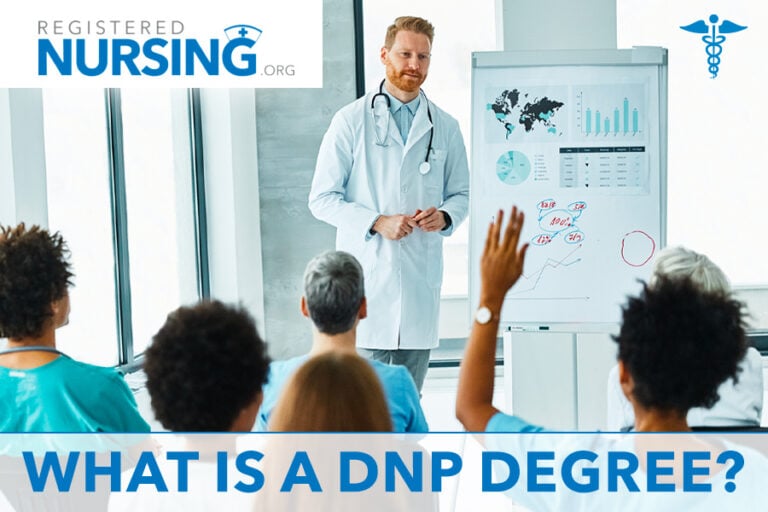
A DNP degree (or a Doctor of Nursing Practice) is a doctoral degree commonly sought by nurse practitioners (NPs) and other advanced practice registered nurses (APRNs). It is the highest degree level that a nurse can obtain; these programs are highly specialized and provide the education and training that APRNs need to seek advanced roles in the nursing field.
Table of Contents:
What sets a DNP apart from other types of degrees is its clinical focus. While Ph.D. degrees exist for nurses who want to focus their practice on research and Ed.D. options are available for those interested in nurse education, DNP degrees are generally suited toward nurses who wish to work with patients in a clinical setting.
With a DNP degree, nurses can enter many of the highest levels of nursing practice. Some career pathways for DNP graduates include:
- Nurse Executive – Leads healthcare organizations, manages nursing staff, develops policies, and implements best practices to improve patient care quality and operational efficiency.
- Clinical Nurse Leader – Oversees the integration of care for a specific set of patients, managing the healthcare team and ensuring that care plans are effectively implemented and coordinated.
- Nurse Educator – In academic settings, DNP graduates can teach and mentor nursing students, develop curricula, and conduct clinical research to advance nursing education.
- Health Policy Nurse/Analyst – Works with government agencies, non-profits, or healthcare organizations to develop, analyze, and implement policies that affect health systems and patient care.
- Nursing Informatics – Combines nursing with information technology to implement and optimize electronic health records (EHR) and other health informatics tools, enhancing healthcare delivery and patient care.
- Certified Nurse Midwife (CNM) – Specializes in childbirth and provides various women’s health medical services, including prenatal and postnatal care. Learn more about certified nurse midwives.
- Certified Registered Nurse Anesthetist (CRNA) – Administers anesthesia for patients undergoing surgery or other medical procedures, ensuring patient safety throughout. Learn more about nurse anesthetists.
To earn your DNP, you'll first need to complete an undergraduate nursing degree (ADN or BSN), receive your nursing licensure, gain first-hand experience as a nurse, and finally enroll in a doctorate degree program.
While you will be required to follow a somewhat regimented educational and professional trajectory, there is a little leeway for how you make it to the DNP enrollment stage through bridge programs.
If you already have your BSN, you can skip the MSN and go straight to the DNP by enrolling in a BSN to DNP program. This type of bridge program lasts three to four years versus a minimum of four years with the BSN-MSN-DNP trajectory. Here is a chart that summarizes the various checkpoints and pathways (in addition to their requirements) to consider as you plan this exciting educational journey.
One of the most attractive aspects of a DNP degree program is the ability to specialize. DNP programs often come with a variety of specializations that students can choose to narrow their focus on a specific area of nursing practice. These specializations also offer the ability to receive further certification as advanced practice nurses. Aside from the opportunities mentioned earlier, here are a few examples of available DNP nurse practitioner specializations:
Family Nurse Practitioner (FNP) – Family Nurse Practitioners are advanced practice registered nurses (APRNs) who specialize in providing primary care to patients of all ages, from infants to elderly individuals. They assess, diagnose, and treat a wide range of acute and chronic illnesses, and they emphasize health promotion, disease prevention, and patient education. FNPs often work in various settings such as clinics, primary care offices, urgent care centers, and community health centers.
Adult-Gerontology Nurse Practitioner (AGNP) – AGNPs specialize in providing primary and acute care to adults across the lifespan, with a particular focus on the care of older adults. They assess, diagnose, and manage common health problems seen in adult and geriatric populations, including chronic conditions like hypertension, diabetes, and heart disease. AGNPs work in settings such as primary care practices, long-term care facilities, hospitals, and specialty clinics.
Pediatric Nurse Practitioner (PNP) – Pediatric Nurse Practitioners are advanced practice nurses who specialize in providing primary and acute care to infants, children, and adolescents. They assess, diagnose, and manage common pediatric health conditions, including developmental disorders, infectious diseases, and childhood injuries. PNPs work in various settings, including pediatric clinics, hospitals, schools, and community health centers.
Neonatal Nurse Practitioner (NNP) – Neonatal Nurse Practitioners specialize in providing specialized care to newborn infants, particularly those who are premature, critically ill, or have complex medical conditions. They work in neonatal intensive care units (NICUs) and provide comprehensive care, including assessment, diagnosis, treatment, and management of newborns’ health needs. NNPs collaborate with neonatologists, nurses, respiratory therapists, and other healthcare professionals to optimize outcomes for neonates
Psychiatric-Mental Health Nurse Practitioner (PMHNP) – PMHNPs are advanced practice nurses who specialize in providing mental health care to individuals across the lifespan. They assess, diagnose, and treat psychiatric disorders, including mood disorders, anxiety disorders, psychotic disorders, and substance use disorders. PMHNPs prescribe medication, provide therapy, and develop treatment plans to help patients manage their mental health conditions. They work in various settings, including psychiatric hospitals, community mental health centers, outpatient clinics, and private practices.
As a doctorate-level nurse practitioner, you will certainly enjoy the perks (financially speaking). Nurse practitioners earn an average of 128,490 per year, according to the Bureau of Labor Statistics , which means that with your level of education and experience, you can safely anticipate much higher than this.
Another benefit that DNP-educated nurses can take advantage of is specialization. While the degree alone will help you establish a better salary, DNP specialties often carry even more weight in the healthcare field. Some of the highest-paid DNP specialties include nurse anesthetists ($214,200 per year on average) and nurse midwives ($131,570 on average per year).
Lastly, the area where you end up practicing will have a lot to do with how much you make. For example, areas like California and Nevada offer the highest salaries to nurse practitioners at an average of $161,540 and $148,670 per year, respectively, whereas places like Michigan, Kentucky, and Missouri pay much lower.
As a DNP program is the highest level of education that a nurse can achieve, it goes without saying that a DNP will have an incredibly advanced curriculum. The main components will involve a combination of leadership and policy, evidence-based practice, informatics, quality improvements, clinical practicum hours, a capstone project, and a number of elective courses. Below is a sample DNP curriculum to give you a good idea of what to expect, though keep in mind that the number of years you'll be required to commit, as well as the curriculum itself, will vary considerably depending on the DNP program you enroll in.
Fall Semester
- Advanced Health Assessment (3 credits)
- Theoretical Foundations of Nursing Practice (3 credits)
- Biostatistics for Evidence-Based Practice (3 credits)
Spring Semester
- Advanced Pathophysiology (3 credits)
- Health Policy and Advocacy (3 credits)
- Evidence-Based Practice I: Methods and Translation (3 credits)
Summer Semester
- Advanced Pharmacology (3 credits)
- Leadership and Organizational Systems (3 credits)
- Clinical Decision-Making and Differential Diagnosis (3 credits)
- Quality Improvement and Patient Safety (3 credits)
- Evidence-Based Practice II: Project Development (3 credits)
- Informatics and Data Management (3 credits)
- Population Health and Epidemiology (3 credits)
- DNP Practicum I (2 credits)
- DNP Capstone Project I (2 credits)
- Elective Course or Specialization Course (3 credits)
- DNP Practicum II (3 credits)
- Healthcare Economics and Finance (3 credits)
- DNP Capstone Project II (3 credits)
- Advanced Clinical Practicum III (3 credits)
- Interprofessional Collaboration and Communication (2 credits)
- DNP Capstone Project III (3 credits)
- Advanced Clinical Practicum IV (3 credits)
As we learned earlier, a DNP and a Ph.D. are both doctoral degree levels available in nursing. However, there are some distinct differences between the two. Most notably, a DNP is heavily focused on the clinical aspects of nursing. They're more geared toward nurses who want to practice nursing on the frontlines and work directly with patients.
A Ph.D. in nursing, on the other hand, focuses on the theoretical side of nursing. Nursing Ph.D. programs train students to become well-versed in nursing research, working primarily in labs or academia. There will certainly be plenty of opportunities to work directly with patients with this degree through clinicals, but it will be limited compared to a DNP degree program.
You may often hear the terms “DNP” and “NP” used interchangeably, but this is not always correct. To break it down, most DNPs are NPs, but not all NPs have a DNP degree. As a nurse practitioner, you are usually not required to have a DNP degree to practice (you usually need a graduate degree such as an MSN), though it’s an option for NPs who want to reach the highest levels of practice.
DNP-educated nurses can pursue careers in areas other than NP specialties. Many graduates with a DNP degree choose to become nurse midwives, nurse anesthetists, nurse informaticists, and more. Many DNP programs will allow students to specialize in these areas. The thing to remember is that a DNP RN is a doctorate-educated nurse trained to hold advanced nursing roles spanning many care areas. An NP is an advanced-practice nurse who holds an MSN or higher and is trained to provide care for one of the specific NP patient populations.
If you've made it through the previous sections and you're ready to get started with a DNP degree program, the first step is to make sure you've met the typical admissions requirements for enrolling in a DNP program. To start applying, you'll need:
- Educational Background: Applicants should have either a Bachelor of Science in Nursing (BSN) or a Master of Science in Nursing (MSN) from an accredited program.
- GPA Requirements: Most programs require a minimum cumulative GPA, often around 3.0 on a 4.0 scale. Some competitive programs might expect a higher GPA.
- Licensure : A current and unencumbered Registered Nurse (RN) license is typically required.
- Clinical Experience: This will depend on the program, but most require a minimum of one to several years of clinical nursing experience.
- Letters of Recommendation: Typically, 2-3 letters of recommendation are required. These should be from academic professors, professional supervisors, or others who can attest to the applicant's qualifications and readiness for advanced practice and doctoral study.
- Personal Statement or Statement of Purpose: Applicants are often required to submit a personal statement or statement of purpose outlining their career goals, reasons for pursuing a DNP, and how the program aligns with their professional aspirations.
- Resume or Curriculum Vitae (CV): A current resume or CV detailing educational background, professional experience, certifications, publications, and other relevant accomplishments.
- GRE Scores: The Graduate Record Examination (GRE) is not always required, but some programs might request GRE scores, especially if the applicant's GPA is below the program's standard.
PhD Program in Nursing
Advance equitable care and improve health outcomes across diverse populations with a phd in nursing..
Prepare to lead and transform nursing practice, policy and research to promote health equity and social justice with Duke University School of Nursing’s PhD Program in Nursing.
Our nursing PhD empowers you with the skills and confidence to develop and test nurse-led models of care that enhance the health of all people, especially those experiencing health inequities. You’ll learn to drive change in nursing practice, influence health policies and conduct research that champions health equity and social justice. Plus, PhD student tuition and 12-month stipends are fully funded for up to five years.
We pride ourselves on welcoming a select group of talented and diverse students each year. As a nursing PhD student, you’ll have the unique opportunity to work closely with our expert faculty members, benefiting from one-on-one mentorship alongside your formal studies.
CHAT WITH US: Join An Information Session
Watch An Information Session
PhD Academic Calendar
Handbook & Bulletin
What Makes Durham Great
PhD Student Bios
Current Research
Financial Support
PhD Program in Nursing Highlights
Our PhD in nursing equips you with exceptional expertise, setting the stage for transformative career opportunities in nursing science and leadership. Through coursework, unparalleled mentorship from expert faculty and exposure to hands-on research opportunities, our nursing PhD shapes the next generation of nursing leaders with a strong emphasis on championing health equity:

Connections with expert faculty: Our nursing PhD faculty will socialize you into the role of a nurse scientist, ensuring you gain the necessary knowledge and skills to launch a successful independent research program post-doctorate. Your connections with nursing research experts will prepare you for an entry-level role as a nurse scientist in various research settings, including academic, clinical or industry environments.
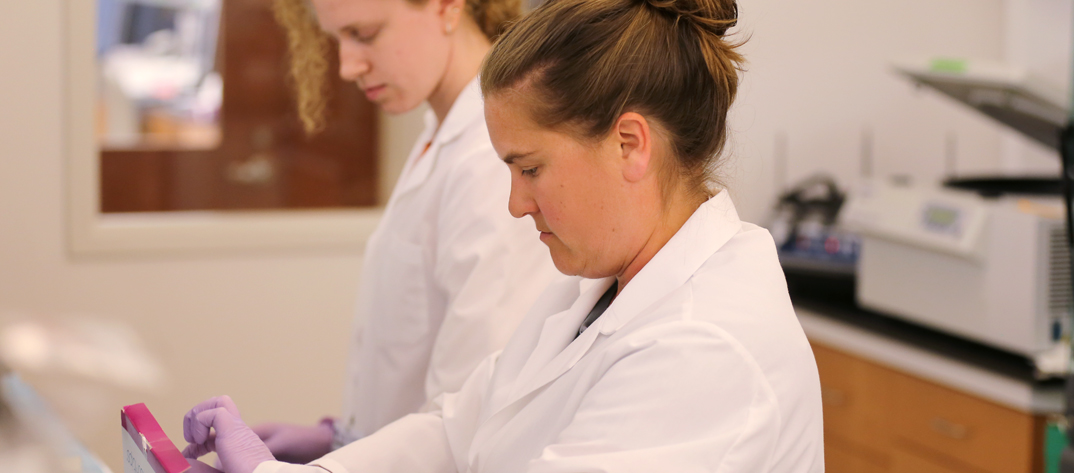
Empowering research opportunities: Gain experience in traditional and innovative research methodologies and thorough statistical training. Our PhD nursing program emphasizes the importance of mentored research and teaching experiences to enhance knowledge and skill development.

Championing health equity: The PhD Program in Nursing offers a comprehensive understanding of the philosophy of science, focusing on addressing complex health issues, especially those concerning health equity, social determinants and justice.

What Can You Do With a Nursing PhD?
Nurses with PhDs play a pivotal role in shaping the future of health care. Our graduates pursue post-doctoral education and move into leadership positions in academia, industry, research institutions and government, advancing nursing theory and practice.
With Duke University’s PhD in nursing program, you’ll be able to:
- Master key concepts in health equity and nurse-led models of care to improve health outcomes.
- Design and conduct research using interdisciplinary.
- Evaluate research with a focus on health equity and nurse-led models of care.
- Maintain ethics and integrity in research.
- Apply advanced methods to research design and analysis.
- Collaborate effectively with diverse teams.
- Publish and present research to advance nursing and promote social justice.
This expertise will prepare you to improve access and equitable health care through roles in:
- Academia: As faculty, PhD prepared nurses equip the next generation of nurses and nurse scientists, blending education, research and service, which may include practice and policy work.
- Leadership and advocacy: A nursing PhD positions you as a leader in clinical settings, health policy and governmental agencies, driving innovations in nursing practice, health care delivery and policy.
- Research: Lead the design and conduct of research studies, secure grants, analyze scientific data and disseminate findings through presentations and publications with your nursing PhD Our program prepares you to conduct high-impact research, design studies, write grant proposals and analyze data using a health equity lens.
With health care ranking among the most in-demand and fastest-growing fields, many of these opportunities offer excellent salary and growth potential. Professional nurse researchers, for instance, earn an average annual salary of $97,336, according to PayScale.com. Also, nursing instructors at colleges and universities can expect a median annual salary of $84,380, according to the U.S. Bureau of Labor Statistics, with the highest 10% earning more than $182,710.
PhD Program in Nursing Description
The program requires a minimum of 52 credit hours of graduate coursework. Students will work on research projects; it is expected most will graduate with several publications. Coursework is structured with a substantive core of nursing science and research methods to be taken in the School of Nursing. This core is expanded with elective courses that typically support the student’s dissertation and future research career. These can be taken in other Duke University departments or other Universities that have arrangement with Duke (i.e., University of North Carolina at Chapel Hill, North Carolina State University, North Carolina Central University). Additional requirements include research practicums and elective credits that may count towards specialty certificates (i.e., teaching, global health, data science, entrepreneurship, etc.).
In addition to course work, the PhD Program in Nursing will require each student to develop a scholarly portfolio, successful completion of a preliminary examination, and a dissertation. Students are expected to disseminate their work through scholarly venues such as publications and conference presentations.
Terminal Objectives
After the PhD Program in Nursing, students will be able to:
- Demonstrate advanced knowledge and understanding of health equity, social determinants of health (SDOH), and nurse-led models of care to improve health outcomes for a population and/or system of care.
- Apply conceptual models and theories from nursing and other relevant disciplines to design and conduct.
- Use a health equity, SDOH, and/or nurse-led models of care lens to critically evaluate and synthesize research conducted in nursing and other disciplines.
- Demonstrate scientific integrity and ethics in research across phases of the research process.
- Apply appropriate methods and analytic strategies to design, conduct, and evaluate research across phases of the research process, from discovery to translation.
- Collaborate effectively with interdisciplinary teams to perform research using socioculturally aligned approaches.
- Disseminate research findings through publications, presentations, and other scholarly venues to advance the evidence base for nursing and healthcare, with a focus on promoting health equity and social justice.

Assistant Dean
Rosa Gonzalez-Guarda PhD, MPH, RN, FAAN
Rosa Gonzalez-Guarda is Associate Professor at Duke University School of Nursing and Assistant Dean of the PhD Program. Her research describes the intersection of intimate partner violence, substance abuse, HIV and mental health among Latinos in the U.S. and the development of multi-level interventions to address these. She uses a syndemic orientation, mixed methods, and community engaged strategies to influence practice and policy changes to promote health equity for Latinos, survivors of intimate partner violence, and other historically marginalized populations.
Learn more about Rosa Gonzalez-Guarda: Scholars@Duke
Meet Our PhD in Nursing Program Faculty
Get to know our distinguished nursing Ph.D. faculty. These renowned experts bring extensive knowledge and specialized research expertise to our Ph.D. program, ensuring that you’ll learn from leaders who are at the forefront of nursing science and innovation.

The Duke Difference

Earn your Duke nursing degree or certificate while you continue to work.

Discover our unwavering focus on creating innovative, nurse-led models of care.
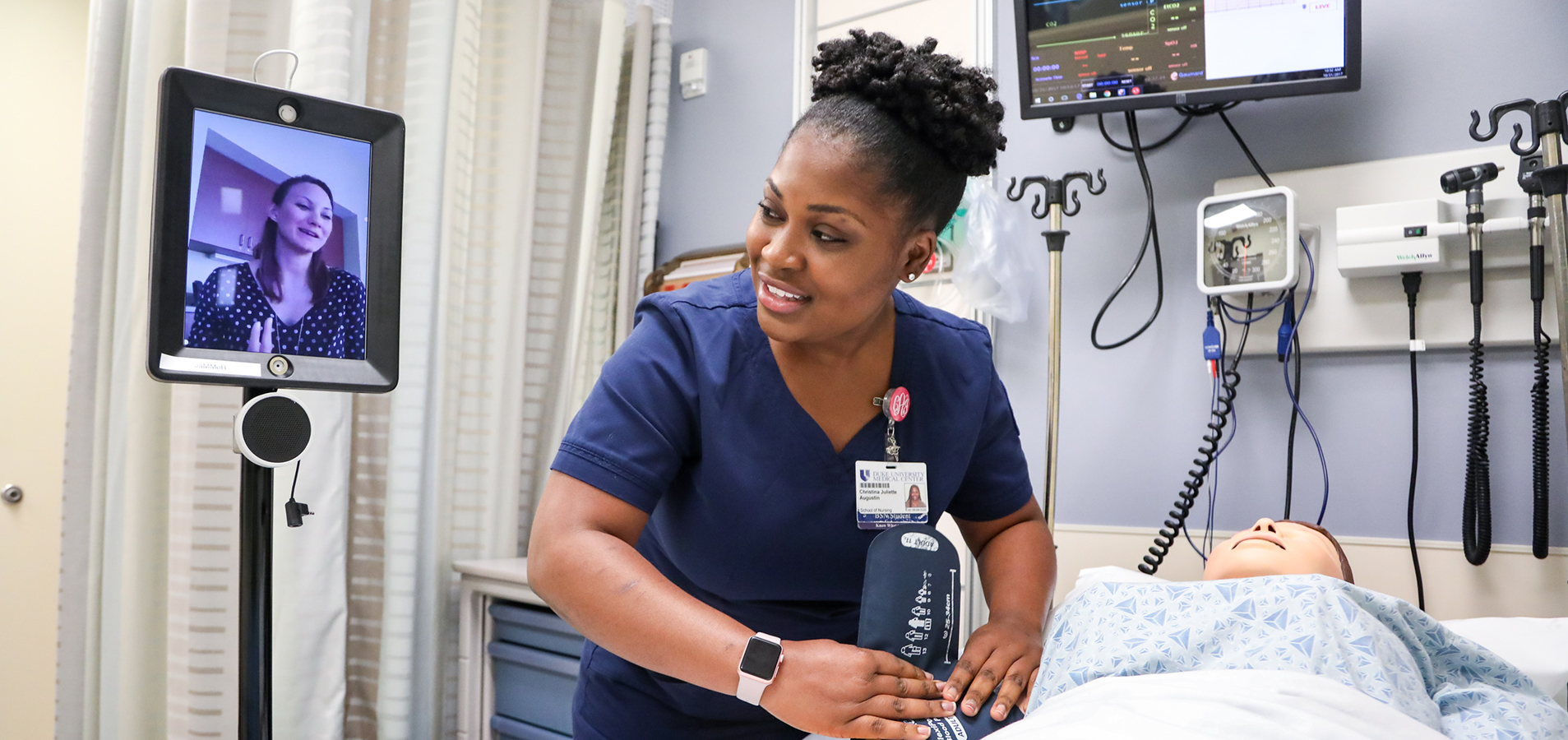
Learn from experts in distance-based and hybrid education for over 20 years.
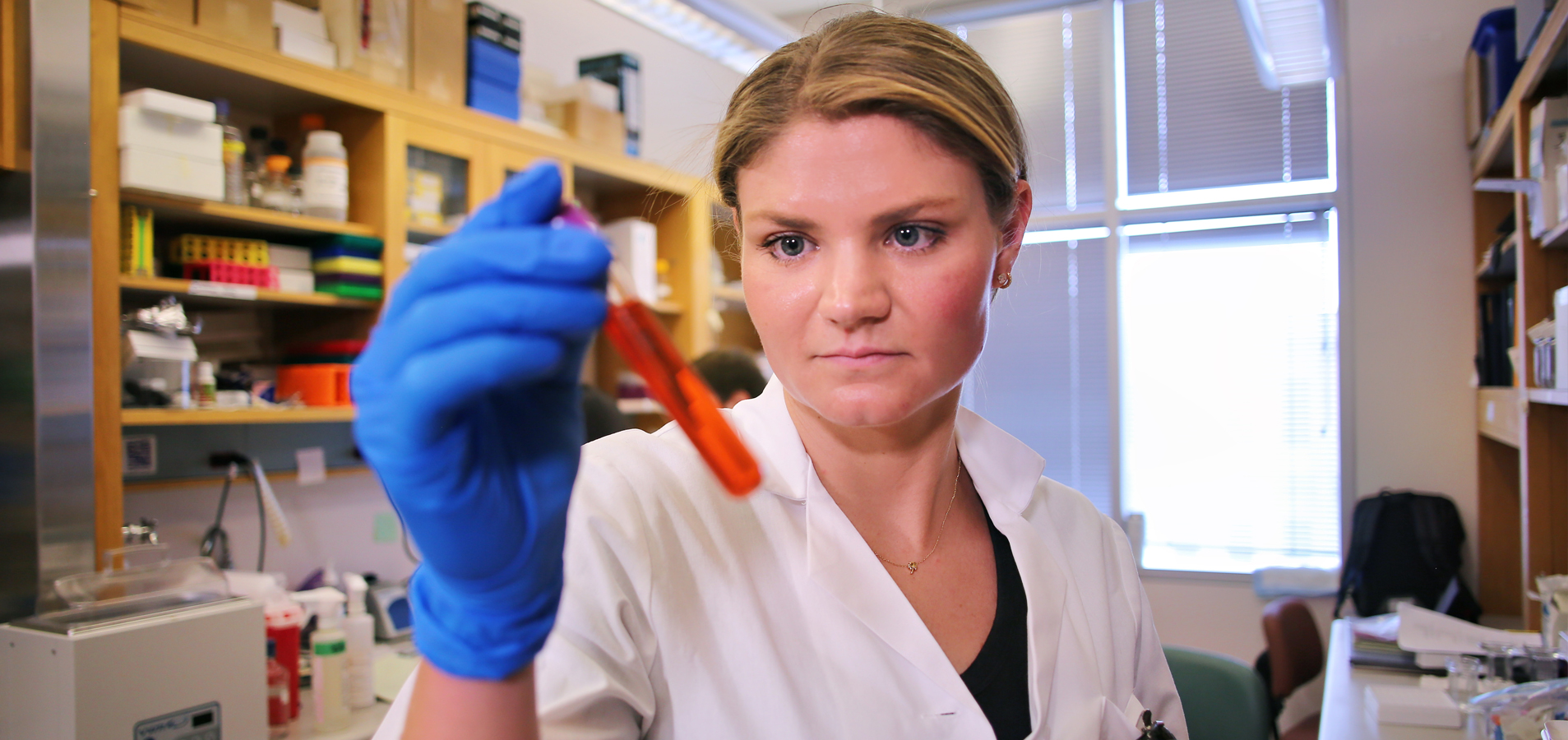
Learn & practice at one of the most advanced health systems in the world.
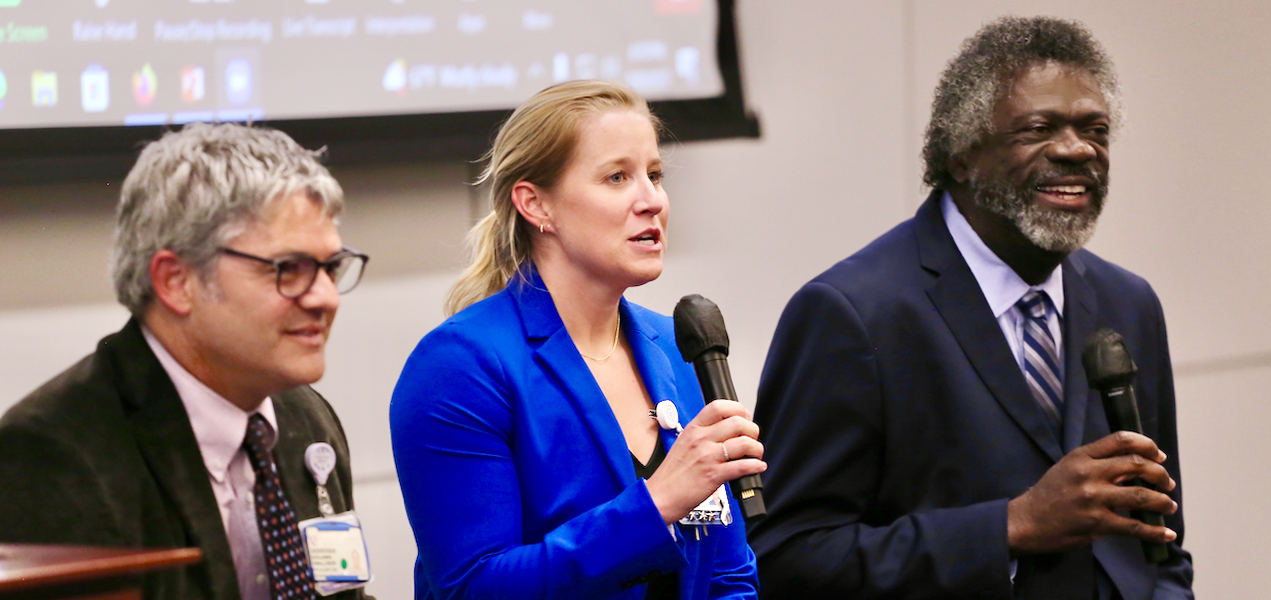
Our faculty are leaders in their field, with real world clinical experience.

We have exceptional students, learning alongside talented & dedicated classmates.
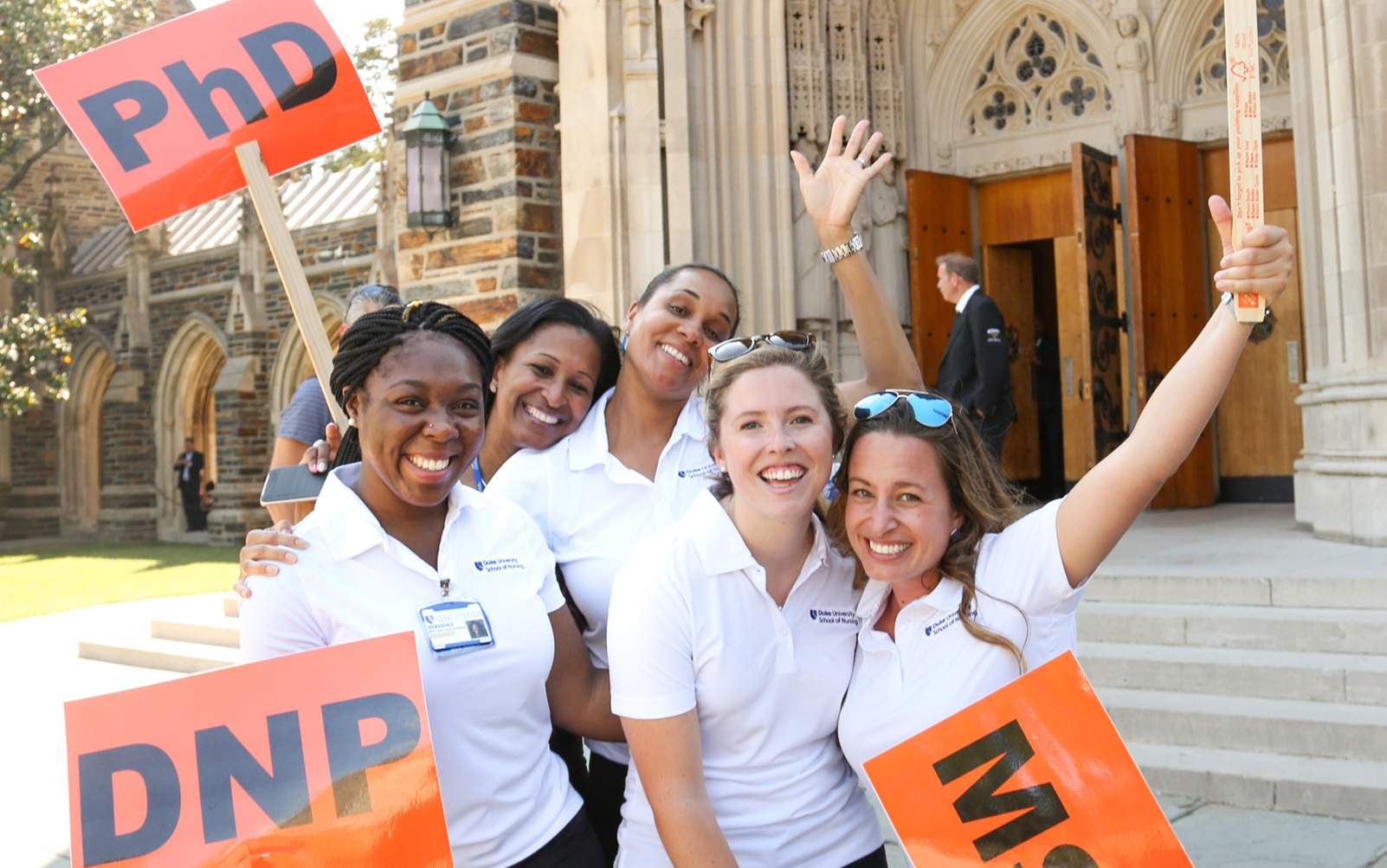
PhD Nursing Admissions
The Nursing Ph.D. Program employs a holistic admissions strategy to evaluate prospective students. Our team assesses an applicant’s unique experiences in addition to traditional academic metrics, considering a wide array of factors indicative of the applicant’s potential for academic and professional success.
If you need additional assistance, contact our admissions team by email or phone: 877-415-3853 .

Bridget Dobson, BSN, RN is passionate about eliminating sexual health education disparities, specifically related to sexually transmitted infections (STIs), sexual violence prevention, and promoting inclusivity regarding sexual orientation. Her goal is to research best forms of providing sexual health education that empower people of all communities, orientations, and abilities to make informed decisions about their bodies. She is also interested in taking advantage of opportunities in health policy and global health at Duke. Coming from Louisville, Kentucky, Bridget worked for over 2 years as a trauma surgical intensive care nurse, where she was able to observe the impact that social determinants of health had on patient outcomes. During this time, Bridget was involved in implementing a “Trauma Informed Care” education module on the unit to improve cultural competence amongst nursing staff. She also served as a research assistant for UL Health’s Nursing Education Department, where we she assisted in the data collection and collaborative manuscript for the study: Institution-Wide Moral Distress Among Nurses: Post-COVID-19 Pandemic. Bridget learned lessons in active communication and importance of community engagement when she volunteered with Kentucky Refugee Ministries. There she assisted residents in acclimating to the city through resource and conversational English education. Bridget is inspired to get involved in Durham’s community and discover how her research goals can impact sexual health equity on a larger scale.

Osborn Owusu Ansah, BSN, RN is a registered nurse from Ghana who has keen research interests in the fields of oncology and palliative care. He graduated from the Kwame Nkrumah University of Science and Technology in 2019 with a Bachelor of Science in Nursing and has since gained significant nursing experience from working across different healthcare settings in both Ghana and the United Kingdom for the past four years. His passion for oncology and palliative care research stems from the worrying statistics on the high mortality rates associated with cancer in sub-Saharan Africa and the low number of opportunities available for individuals to extensively study on the merits of incorporating palliative care into the healthcare system in Africa. Osborn’s purpose for pursuing doctorate-level studies is to acquire competencies that will help him discover and develop cost-effective interventions that can enhance symptom management and well-being of people with cancer.

Jill Sergison, MA, CNM, RN is a certified nurse-midwife with nearly 20 years of experience in maternal and family planning care. In addition to her clinical experience, Jill conducted novel contraceptive research at FHI360 to promote availability and sustainability of family planning services worldwide. She was the NC Director of Policy for a reproductive health organization before co-founding Points True North (PTN) Consulting in 2022 and is currently engaged in the implementation of pharmacist-initiated contraception in NC. She has many years of experience working with progressive organizations on a range of critical health, gender, racial and social justice issues and expertise in building coalitions and driving policy change. Notable recent policy achievements include work in the extension of Medicaid for Pregnant Women and 12-month dispensing of contraception through Medicaid. Jill is founder and Executive Director of North Carolina Nurses for Reproductive Rights and co-developed reprohealthnc.org, dedicated to providing reproductive health access information to NC residents. She is tri-chair of NC’s Reproductive Life Planning group, board chair of the C4 arm of Pro-Choice NC, and member of the NC Perinatal Equity Collaborative. She obtained her BS from Wake Forest University and her MA from New York University.

Olivia Short, BSN, RN joins DUSON after three years as a clinical research nurse on neurological and maternal-fetal medicine studies, two of those years with Duke School of Medicine. Her passion for research blossomed during her senior thesis, where she tested the impact of biofeedback videogaming on stress and anxiety in young adults. This experience, alongside her own journey with PTSD, highlighted the importance of considering both internal and external factors in addressing anxiety, especially in low resource environments. Healthcare systems and providers play an enormous role in determining the evolution of long-term health outcomes of anxiety, PTSD, and trauma. Olivia recognized the pressing need to establish networks of trauma-informed care environments, where individuals can safely and actively shape their healthcare experiences and avoid re-traumatization and delayed or inappropriate care. Her research interests center around understanding the healthcare experiences of survivors of interpersonal violence, particularly those dealing with chronic pain and PTSD, and addressing individual and systemic barriers to improved care coordination. With a passion for holistic sexual health, Olivia aims to incorporate education on violence prevention, power dynamics, autonomy, and pleasure within the trauma-informed framework. Outside of her professional endeavors, she enjoys spending quality time with her partner and their cat Nutmeg. She spends as much time as she can doing activities that fill her cup such as cooking, reading fiction, camping, hiking, dancing, and playing piano.

Jolie S. Jemmott MSN, RN, PMHNP-BC earned her BSN in 2019 from Hampton University in Hampton, VA and her MSN in 2022 from the University of Pennsylvania School of Nursing in Philadelphia, PA. She has been a nurse for the last 5 years working and has worked in the areas of colorectal and psychiatry. Over the last year, Jolie has worked as a psychiatric mental health nurse practitioner, working specifically in community mental health adult outpatient services. Jolie is passionate about working with those in marginalized and vulnerable populations experiencing mental health challenges. She decided to pursue a career as a nurse scientist to become an expert in the psychological underpinnings of African American substance-abusing men with dual diagnoses and developing the most successful treatment approaches for them and their families. Moreover, she wants to explore strategies to reduce substance use behaviors among African American men. Jolie’s primary goal for doctorate level studies is to become a professor at a research-intensive university and develop a program of research that makes a difference in improving mental health and health equity of substance-abusing populations. Through her research, she hopes to build a research program that continues to advance nursing knowledge, contributes to the health of vulnerable, marginalized underrepresented communities around the globe, and shapes the future of nursing science and healthcare.
Financial Aid for PhD Nursing Students
Ph.D. student tuition and 12-month stipends are fully funded for up to five years. As a Ph.D. student, you’ll receive a competitive package that should provide financial support (tuition, stipend, health insurance) for the majority of the time you are registered and working toward your degree. Ph.D. students are supported in various ways, including funding from the School of Nursing, Graduate School and other governmental and private sources.

Join our nursing community today
Experience the Duke difference. As a top nursing school in the nation, we empower students to become successful nurses who lead with purpose and passion.
Stay updated, stay inspired!
Join our Health Equity Reimagined Newsletter. By subscribing, you agree to receive emails from Duke University School of Nursing. We value your privacy. You can unsubscribe at any time.

IMAGES
COMMENTS
A doctorate in nursing is the terminal degree in the field and comes in two forms: a doctor of nursing practice (DNP) and a doctor of philosophy in nursing (Ph.D.). Compared to the more clinical DNP, a nursing Ph.D. focuses more on research, education, and policy.
University of Missouri's Ph.D. in Nursing prepares you for an advanced career in nursing, either as a scholar, educator, or clinical researcher. Due to its interdisciplinary approach, even non-nursing students can enter this program. To pursue this degree, you have three pathways; post-BSN, post-MSN, and post-DNP.
Learn about the benefits and options of doctoral nursing degrees, such as the PhD and DNP, for nurses who want to teach, research, or lead. Find a program, read articles, and explore career opportunities with a doctorate in nursing.
They allow RNs without a bachelor's degree to pursue a doctorate. These programs vary in length, but typically take students 5-8 years to complete. The curriculum accelerates bachelor's- and master's-level training and features extensive clinical experience components to the individual requirements for each degree.
The DNP is designed for nurses seeking a terminal degree in nursing practice and offers an alternative to research-focused doctoral programs. DNP-prepared nurses are well-equipped to fully implement the science developed by nurse researchers prepared in PhD and other research-focused nursing doctorates.
A Ph.D. in Nursing is the highest degree awarded to nurses and one of two terminal nursing degrees. Ph.D. stands for Doctor of Philosophy, and Ph.D. in Nursing programs focus on evidence-based research. Throughout their 4-6 year study, nursing Ph.D. students learn how to conduct, analyze, and publish nursing research.
A DNP degree (or a Doctor of Nursing Practice) is a doctoral degree commonly sought by nurse practitioners (NPs) and other advanced practice registered nurses (APRNs). It is the highest degree level that a nurse can obtain; these programs are highly specialized and provide the education and training that APRNs need to seek advanced roles in the nursing field.
A PhD in Nursing is a terminal degree, with the main goal of adding original research findings to the scientific foundation of nursing and healthcare. Some nursing PhD programs offer specializations in high-priority areas that emphasize research and teach critical attributes such as leadership, education, healthcare administration ...
With Duke University's PhD in nursing program, you'll be able to: Master key concepts in health equity and nurse-led models of care to improve health outcomes. Design and conduct research using interdisciplinary. Evaluate research with a focus on health equity and nurse-led models of care. Maintain ethics and integrity in research.
Learn how to advance the theoretical foundation of nursing practice and healthcare delivery with a Johns Hopkins PhD in nursing. Find out the admission criteria, curriculum, tuition, and financial aid for this full-time onsite program.